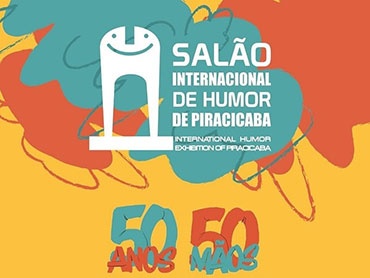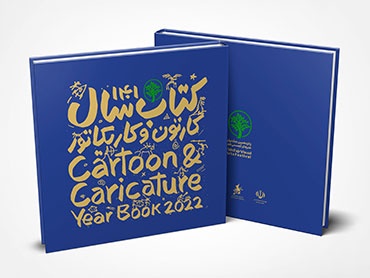
Mario Vargas Llosa, the last giant of Latin American literature, dies
Writer Mario Vargas Llosa, winner of the 2010 Nobel Prize for Literature, died this Sunday at the age of 89. The news was given by his children on social media, who announced that he passed away at his home in Lima, Peru, “surrounded by his family and in peace.”
Mario Vargas Llosa, Nobel Prize for Literature in 2010, is considered the last giant of a golden generation, one of the protagonists of the Latin American literary boom of the 60s and 70s, alongside the Colombian Gabriel Garcia Marquez and the Argentine Julio Cortazar.
The news of his death, at the age of 89, was given by his children on the social network X, who highlighted that their father died “surrounded by his family and in peace”. Morgana Vargas Llosa wrote: “His departure will sadden his family, his friends and his readers throughout the world, but we hope that they will find consolation, as we do, in the fact that he had a long, varied and fruitful life, and that he left behind a work that will outlive him.” The daughter adds that in the coming hours and days, funeral ceremonies will be held "according to her instructions", so "there will be no public ceremony".
The Peruvian government has declared April 14 a "day of national mourning", during which flags are flown at half-mast in public buildings.
Several current and former heads of state from Latin America expressed their condolences on the social network X. Peruvian President Dina Boluarte described Mario Vargas Llosa as a "universal writer and distinguished winner of the Nobel Prize for Literature", whose "intellectual genius and vast body of works will remain as an eternal legacy for future generations".
Guatemalan President Bernardo Arévalo described him as “a great chronicler of Hispanic America and a perceptive interpreter of its paths and destinies.”
Former Uruguayan President Luis Lacalle Pou stated that "Vargas Llosa left his mark on many aspects of life, always remaining true to himself" and said he always appreciated Vargas Llosa's generosity.
Former Colombian presidents Álvaro Uribe and Iván Duque also said goodbye to the writer they called a "master."
Venezuelan opposition leader María Corina Machado highlighted her "incomparable legacy" in defending freedom in Latin America and the world.
Spanish Prime Minister Pedro Sanchez also described him, at X, as “universal master of the word”.
Novelist, short story writer, playwright, screenwriter, essayist, literary critic, journalist, university professor and politician, Mario Vargas Llosa was born in Arequipa, in southern Peru, on March 28, 1936. In “Like a Fish in Water”, a memoir published in 1993, he says that it was his father's contempt for literature that made him fight to be a writer. When he found out that Mario wrote poems, his father admitted him to a military school, whose authoritarian culture is evident in his first novel, “The City and the Dogs”, published in 1963.
When he was 19 years old and studying Literature and Law at the University of San Marcos, the writer married a woman ten years older than him, the sister of an aunt by marriage and who was the source of “Aunt Julia and the Writer”, a 1977 novel. After graduating, he went to Paris in the late 1950s. Later, he completed his doctorate at the Complutense University of Madrid, which he completed in 1971 with a dissertation on Gabriel García Márquez and a reflection on literature and fictional narrative that would continue in other essays – “Secret History of a Novel” (1971) and “Letters to a Young Novelist” (1997).
He separated from Julia Urquidi Illanes, “Aunt Julia”, and, in 1965, he married Patricia Llosa, first cousin and niece of his first wife, with whom he remained for half a century and had two sons and a daughter. Still in the 60s, he published “Conversa na Catedral” (1969), a political novel, based on the “dark years” of the dictatorship of Manuel Apolinario Odría (1948-1956). Another political novel is “A Festa do Chibo" (2000). From an early age, Vargas Llosa began to get involved politically, first as a supporter of Fidel Castro and the Cuban revolution, then as a defender of liberal democracy, which was more conservative and capitalist, and even ran for president of Peru in 1990, in a center-right coalition, against Alberto Fujimori. He wins in the first round, but loses in the second and returns to Europe, where he acquires Spanish nationality three years later. He returned to Lima in 2024.
In 2010, he received the Nobel Prize for Literature and the jury justified the choice of Vargas Llosa because he wrote a book that "carts the structures of power" and a work that reveals "scathing images of resistance, revolt and individual failures".
In his speech at the Nobel ceremony, he declared: “We would be worse off than we are without the good books we read; we would be more conformist, less restless and insubordinate, and the critical spirit, the driving force of progress, would not even exist. Just like writing, reading is a protest against the inadequacies of life. Those who seek in fiction what they do not have say—without needing to say it, or even knowing it—that life as it is is not enough to satisfy our thirst for the absolute, the foundation of the human condition, and that it should be better. We invent fiction so that we can live, in some way, the many lives we would like to have when we only have one.”
Other masterpieces by the writer are “Pantaleon and the Visitors” (1973), “Who Killed Palomino Molero?” (1986), “In Praise of the Stepmother” (1988) and “The Notebooks of Dom Rigoberto” (1997). His books have been translated into about 30 languages.
Source
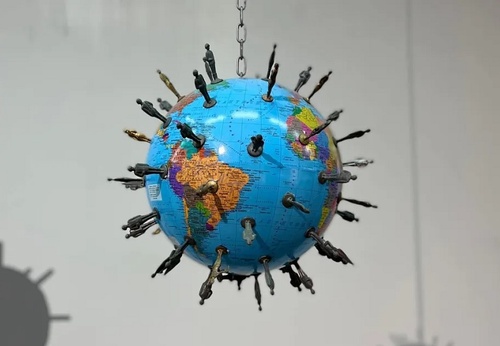
- January 28, 2026
Globalization and New Discourses in Contemporary Latin American Art
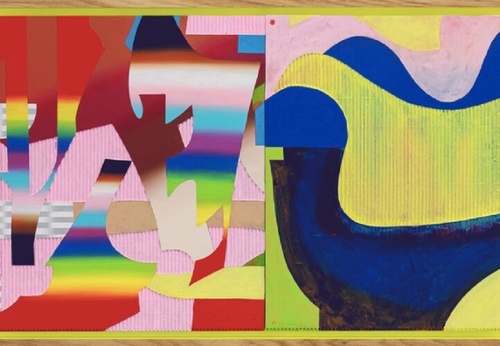
- January 28, 2026
Contemporary Art in Latin America

- January 27, 2026
Aztecs in the Empire City: “The People Without History” in The Met


- January 27, 2026
The Evolution of Art: From Classical to Digital

- January 27, 2026
What are Visual Arts and Why Do They Matter Today?

- January 27, 2026
Selected Illustration Gallery of Venezuelan Artists

- January 27, 2026
Selected Caricature Gallery of Cuban Artists
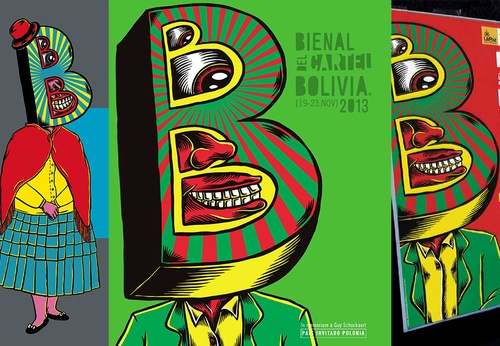
- January 26, 2026
Bolivia Poster Biennial (BICeBé 2013)

- January 27, 2026
The exhibitions "From Tàpies to Siqueir…

- January 19, 2026
The Pulse of Art, Design, and Culture R…

- January 19, 2026
The Argentine museum celebrates 25 year…

- January 08, 2026
Latin American Pavilion Among the New A…

- January 07, 2026
Material Art Fair 2026

- January 05, 2026
The Latin American Pavilion Marks a Mil…

- December 31, 2025
the 10 million-dollar sales of 2025

- December 30, 2025
MALBA Doubles Collection and Reposition…

- December 29, 2025
The FEMSA Collection will celebrate its…

- December 25, 2025
“Ancestral Artist”: A Look at the Craft…

- December 25, 2025
Winner of the 13th Most Important Conte…

- December 25, 2025
Malba Acquires the Daros Latinamerica C…

- December 24, 2025
2026, a Key Year in Cultural Exchange B…

- December 23, 2025
Sacred Art Celebrates Christmas Through…

- December 22, 2025
MACA Inaugurates Exhibitions of Fontana…

- December 20, 2025
Costantini Acquires the Daros Collectio…

- December 17, 2025
ARCOmadrid Announces Participating Gall…

- December 17, 2025
Eduardo Costantini Acquired a Collectio…

- December 15, 2025
From Chile to Gaza: «Palestine Cries,»

- December 15, 2025
Latin American Artists MACLA and Montal…

- October 08, 2023
Illustrations reflect the brutal Israel…

- December 25, 2023
The jury statement of the Iran-Brazil F…

- March 21, 2024
The history of art in Palestine

- July 29, 2023
History of Caricature in Brazil

- September 01, 2023
Neural Filters in new photoshop 2023

- April 20, 2024
Poignant Image of Grief Wins Mohammed S…

- May 22, 2025
Brady Izquierdo’s Personal Exhibition O…

- June 29, 2024
Exhibition at Centro MariAntonia contra…

- October 21, 2023
Erick Meyenberg and Tania Ragasol at th…

- February 18, 2024
7 Ways to Understand What Visual Arts A…

- May 15, 2024
Eleven murals for Gaza painted across t…

- March 30, 2024
illustration websites in Latin America

- August 09, 2023
Venezuela mural expresses solidarity wi…

- March 14, 2024
museum of statue of van gogh

- May 25, 2025
Bordalo II to hold exhibition in Paris …

- March 15, 2024
museum of sculpture of Salvador Dali

- May 20, 2024
Latin American Festival of Performing A…

- January 23, 2025
Art Palm Beach 2025

- March 18, 2025
Works by Cuban Artist Eduardo Abela in …

- January 04, 2025
Material Art Fair 2025

- May 15, 2024
Eleven murals for Gaza painted across t…

- February 18, 2024
7 Ways to Understand What Visual Arts A…

- January 02, 2025
13 commemorations that will mark the cu…

- October 17, 2023
The influence of Latin American artists…

- February 03, 2024
THE HISTORY OF NAIF ART

- July 02, 2024
One of the largest urban art galleries …

- November 17, 2023
Fernando Botero's work is booming after…

- October 08, 2023
Illustrations reflect the brutal Israel…

- July 29, 2023
Piracicaba International Humor Exhibiti…

- December 25, 2023
The jury statement of the Iran-Brazil F…

- November 06, 2023
Heba Zagout: Palestinian artist murdere…

- December 10, 2023
Sliman Mansour and Palestinian art on t…

- March 14, 2024
museum of statue of van gogh

- February 01, 2025
A maior exposição de Botero em Barcelona

- March 21, 2024
The history of art in Palestine

- July 20, 2024
First International Mail Art Biennial 2…

- April 20, 2024
Poignant Image of Grief Wins Mohammed S…

- October 30, 2023
Palestinian turns images of the Gaza co…

- September 01, 2023
Neural Filters in new photoshop 2023

- February 08, 2024

